Publications, Evaluation
Hcéres publishes the integrated evaluation report on Université PSL
Published on
Université PSL is a grouping of prestigious institutions, many of which have a strong research orientation and operate under the aegis of different ministries, while laying claim to their own distinctive “signature” in terms of the development of “radical interdisciplinarity”. The institution prioritises the attainment of scientific excellence, by giving its professors and the researchers it wishes to support a very high degree of scientific autonomy in order to guarantee their creativity and ability to innovate.
The members of Université PSL are committed to “developing a unified strategy for research, training and the exploitation of research findings. They draw up a joint budget. They implement a joint, multi-year academic recruitment plan. They establish shared departments which enable them to better fulfil their missions. They have agreed to place all their degrees – Bachelor-Master-Doctorate – under the PSL banner. Together, they develop strategic international partnerships”.
In future, the focus for Université PSL “should move towards developing ever-stronger synergies in order to enable the harmonious coexistence of a collective identity and subsidiarities”, concludes Michel Devillers, Professor of Chemistry at Université Catholique de Louvain and Chair of the expert committee. He also underlines key development issues the University will need to address:
- working with groupings of institutions in central Paris, including the Condorcet Campus, to coordinate individual strategies;
- developing a business model to facilitate the transition between a period of opportunities related to funding from the Investments for the Future Programme (PAI), and an activity consolidation, roll-out and alignment phase;
- reflecting the clear goal of ensuring “radical interdisciplinarity” in its range of master’s degree courses;
- supporting an ambitious international strategy by creating powerful collective dynamics among first-line stakeholders and implementing operational mechanisms;
- engaging in a general reflection on the different engineering study programmes and on the opportunities for greater coordination and the pooling of resources in certain areas (pedagogical innovation, entrepreneurship, specific courses, etc.).
Taking heed of these recommendations, Alain Fuchs, President of Université PSL, specifies in his letter of observations that “the exercise conducted by HCERES took place in an institutional context that has since undergone significant changes” with the Order of 12 December 2018. As the establishment of Université PSL has therefore accelerated, he provides additional insights into the future site on the Condorcet Campus, the roll-out of the real estate policy, the integration of IT departments, the launch and configuration of the complete range of master’s degree courses and changes in governance.
The integrated evaluation report on Université PSL is the second of its kind published by Hcéres. Based on the same principles and methodology adopted previously, this new report is supplemented with a summary of the institutions belonging to the territorial cluster evaluated by Hcéres.
The next integrated evaluation reports will be published in 2020, as part of the 2018-2019 evaluation campaign (Group E). They will successively concern Université Paris Seine, Université Paris Lumières and Université Paris-Saclay.
View the integrated evaluation report for Université PSL
- View the integrated evaluation report for Université PSL
This report, in the form of four evaluation summaries (integrated, institutions, study programmes and doctoral schools - research units), presents the results of the reviews carried out during the 2017-2018 period. - Key figures on the evaluation of the territorial cluster:
In total:- 755 experts mobilised in 122 evaluation panels;
- 132 evaluation reports produced, covering the territorial cluster, institutions, research units, doctoral schools and study programmes (review and project)
Focus on integrated evaluation principles
- Integrated evaluation summary
The integrated evaluation process is carried out in two stages (an evaluation phase followed by an analysis phase) and provides an overview of the collective dynamics within a group of institutions, assessing its strengths, weaknesses and development challenges. The methodology adopted consists in analysing all the evaluations that have been conducted (institutions, study programmes, research) and performing cross-analyses to provide new insights into the grouping that is being evaluated. - Integrated evaluation review
The integrated evaluation report includes the analyses that have been produced along with annexes, including notably a bibliometric analysis prepared by the Science and Technology Observatory (OST). This report is the final stage in the process of evaluating a site and provides a tool for the management teams of the cluster, for local, regional and national decision-makers and for those in positions of responsibility in the relevant ministries.




